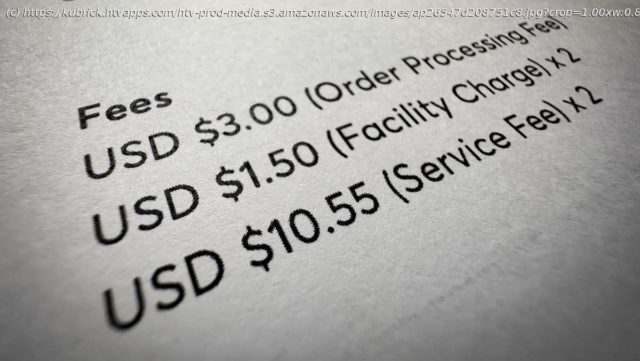The Biden administration has proposed a new Federal Trade Commission rule that would require more transparency from companies when it comes to these fees.
«Junk fees» are just what they sound like: hidden or misleading charges that increase the total cost of concert tickets, hotel rooms, utility bills and other goods and services.
The Biden administration has proposed a new Federal Trade Commission rule that would require more transparency from companies when it comes to these fees, as well as regulation from the Consumer Finance Protection Bureau and the Department of Labor. You can also avoid the fees by staying vigilant, challenging late-breaking add-ons, and comparison shopping.
Video above: President Biden speaks on junk fees and the economy
Here’s what to know:
WHAT QUALIFIES AS A JUNK FEE?
Often, junk fees don’t appear until the final pages of a checkout process, such as when buying concert tickets, airline tickets, hotel stays, or other products with «processing charges.»
These fees may also appear late in the payment process when it comes to housing, such as when acquiring a rental, as well as when purchasing services for incarcerated people (such as phone calls, emails, or money transfers). Ariel Nelson, a staff attorney at the National Consumer Law Center, says that increased transparency will allow consumers to avoid sellers who inflate prices. That doesn’t always apply to prisoners because they don’t always have a choice about where to buy from. The rule will also reduce the wasted time consumers spend trying to find the real price of a good or service.
«The law will require disclosure upfront of fees and prohibit misrepresenting the total cost, as well as the nature and purpose of the fee,» Nelson said. «If you think there are charges that don’t make sense or you’re paying for something not included in the original price, you should tell the FTC and the states’ attorneys general.






